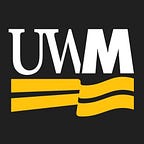Ecuador | Panthers Abroad
Ecuadorian Amazon and Quito, Ecuador | Maren (Masha) Hawkins | Summer 2019 | 2nd Year PhD student at the UWM Joseph J. Zilber School of Public Health in the Department of Community and Behavioral Health Promotion
I did two study abroad programs this summer, both in Ecuador. The first was in the Ecuadorian Amazon studying Ecuadorian Kichwa (an indigenous language) for two months, I received a Foreign Language and Area Studies Fellowship (FLAS) from the UWM Center for Latin American and Caribbean Studies. The second program was in Quito, Ecuador’s Capital. This was an intensive two-week program run by the UWM College of Nursing; it was a nursing class that focused on healthcare in Ecuador. I spent three months in Ecuador this summer.
Why did you want to study abroad and to this location specifically?
I had been to Ecuador once prior and loved it. I love hiking, being outdoors, and I’m also an American Field Service Returnee and a Returned Peace Corps Volunteer, so I’m comfortable pretty much anywhere. Ecuador is roughly the size of Oregon, straddles the equator, and has an incredibly diverse landscape. Quito is located in the Andes, sits at nearly 10,000 feet above sea level, and you can see the snow capped peaks of 19,000 foot peaks from the city. Ecuador’s Amazon is considered one of the most bio-diverse places on the planet, so it was an incredible opportunity to be able to study there. It is an opportunity that I would not have had without UWM CLACS.
In what ways was this country the most different from living in the U.S.?
The healthcare cost and access was significantly better than the U.S., I got sick and had to access healthcare services both in the private and public sector, and I was amazed. The care was either free or extremely cheap, I had relatively short wait times, and even my medications were free. Additionally, every Sunday, Quito has what’s called “Ciclovia” this is when many of the main streets are blocked off so that people can walk and bike, and the parks are packed with people.
What did a typical day look like for you?
Get up, exercise, have breakfast with my host family, spend all day in class, come home, have dinner with my host family, do more homework, study, and go to bed. Class, both in Quito and the Amazon, did not mean sitting in a classroom all day, it meant visiting local non-profits, having language class in the forest, accompanying home visits, and going to museums.
How much did this trip impact your educational experience and in what ways?
I would like to sincerely thank the staff and faculty of UWM CLACS, the Study Abroad Office, the College of Nursing, and the UWM Zilber School of Public Health for making any of this possible. One of the ways this summer impacted my educational experience was by making me more aware of the fantastic opportunities and funding available at UWM. Moreover, the programs I participated in this summer aligned well with my PhD program, and helped me in thinking through long-term collaborations and potential PhD topics for my dissertation.
What was your favorite memory from the trip?
I have three favorite memories from the trip. First, traveling seven hours by bus and then motorized canoe deep into the Amazon to spend several days in primary forest with the Waorani (one of Ecuador’s indigenous groups). It was truly a once in a lifetime experience. Second, learning to use an ice ax and crampons on Cotopaxi in preparation for a summit attempt with my step-dad. Finally, summiting the volcano Pichincha with Jayde and Maddy (two UWM nursing students) on my last day in less than three hours.
Something I would like to add:
Something I would like to add is regarding the importance of language learning and cultural humility, for everyone, but especially for students in health professions. Clear communication is vital among individuals and their healthcare providers, language and cultural humility are crucial aspects of that. They help foster trust and bridge gaps that are more than just linguistic. Many of the nursing students expressed interest in continuing their Spanish language learning after the program ended, so I think it’s fantastic that UWM has robust language classes, Spanish Language Tables, the Spanish for Health Professionals Certificate, the Global Studies Degree, and a College of Nursing and School of Public Health that value language learning, cultural humility, and a global perspective.
This could be you! Check out the options we have for studying abroad here. If you’re interested in learning more, the Center for International Education is located in Garland Hall, Room 138 or can be contacted at (414) 229–4846 and cie@uwm.edu.
